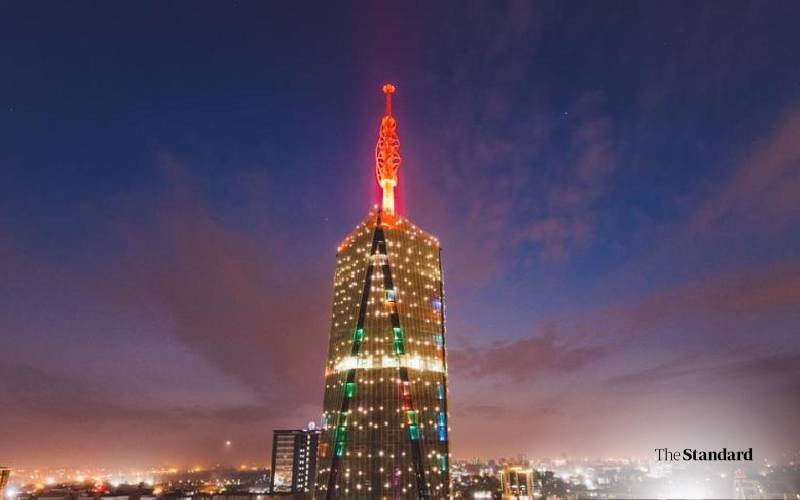DR Congo launches mpox vaccination drive, hoping to curb outbreak
Africa
By
David Njaaga, AFP
| Oct 06, 2024

A clinician prepares a syringe with the mpox vaccine during the launch of the vaccination campaign at the General Hospital of Goma, on October 5. [AFP]
The Democratic Republic of Congo, the epicentre of an mpox epidemic, launched a vaccination campaign against the virus on Saturday in the eastern city of Goma, AFP journalists said.
The launch, initially scheduled for last Wednesday, was delayed by three days amid logistical difficulties delivering the vaccines across the sprawling, infrastructure-poor central African country.
The first vaccines were administered to hospital staff, with the program due to target the general population from Monday in the east of the country, where the current outbreak started a year ago.
"As a doctor, I'm on the front line and in constant contact with those who are sick... I want to protect myself," the first to be vaccinated, Jeannine Muhavi, told journalists.
READ MORE
Kenya attains key milestone in sustainable buildings
Clinker imports dip 93pc as construction sector growth slows
Lack of market data delays State plan to industrialise counties
State vows law review to counter new tech threats
Government bans over 50 harmful pesticide brands
Insurance firms push for higher compensation for policy holders
Airbnb's fund boost Sh1b to 160 entities
Inadequate managerial capacity limits SMEs access to financing
Local health officials and NGO workers had set up large tents to administer the vaccines, unfurling banners with the message: "mpox exists."
Romain Muboyayi, chief of staff at the health ministry, said Saturday in Goma the country would lead a "full-out combat" against this "treatable and avoidable disease".
In a posting on X, the World Health Organization (WHO) said the vaccination campaign adds "a crucial measure to complement ongoing outbreak control efforts and protect lives."
The DRC has so far received 265,000 vaccine doses, including donations from the United States and European Union.
But it is still waiting for millions more promised doses to arrive from France, Japan and the United States.
Since the start of the year, the country, one of the world's poorest, has recorded more than 30,000 mpox cases, with 988 deaths, according to Health Minister Samuel-Roger Kamba.
Seventy percent of the deaths have been children under five.
"It will not be a mass vaccination campaign... the strategy is to vaccinate people most at risk," Kamba told a press conference Friday in the capital, Kinshasa.
"As you can imagine, in a country of 100 million people, we're not going to solve the problem with 265,000 doses."
He said the aim was to target priority groups, such as those with existing health conditions and medical workers.
- Awaiting doses for children -
The DRC's current vaccine doses, manufactured by Danish drugmaker Bavarian Nordic, are only intended for adults.
The DRC has been in talks to secure further supplies from Japan, where another mpox vaccine has been approved for use on both adults and children.
Japan has promised to send three million doses, Kamba said.
President Joe Biden said last month the United States plans to donate one million doses of the mpox vaccine to African nations.
"We are ready to commit $500 million to help African countries prevent and respond to mpox and to donate one million doses of mpox vaccine, now," he told the UN General Assembly in New York.
The WHO said Friday it had approved the use of the first diagnostic test for mpox.
The test allows for the detection of the virus from swabs taken from human lesions.
Kamba said the WHO had pledged around 4,500 tests for the DRC, but did not give an arrival date.
Scientists discovered the disease, formerly called monkeypox, in 1958 in Denmark among monkeys kept for research.
It was first spotted in humans in 1970 in what is now the DRC.
The disease can cause painful rashes, fever, aches and lethargy, and in some cases can be deadly.
Mpox has been detected in 16 African countries so far this year, according to the Africa Centres for Disease Control and Prevention (Africa CDC).
The virus gained international prominence in May 2022, when a strain known as clade 2b spread around the world, mostly affecting gay and bisexual men.
In July 2022, the WHO declared a Public Health Emergency of International Concern, its highest level of alarm.
The virus is currently circulating in 16 African countries, according to Africa CDC.

